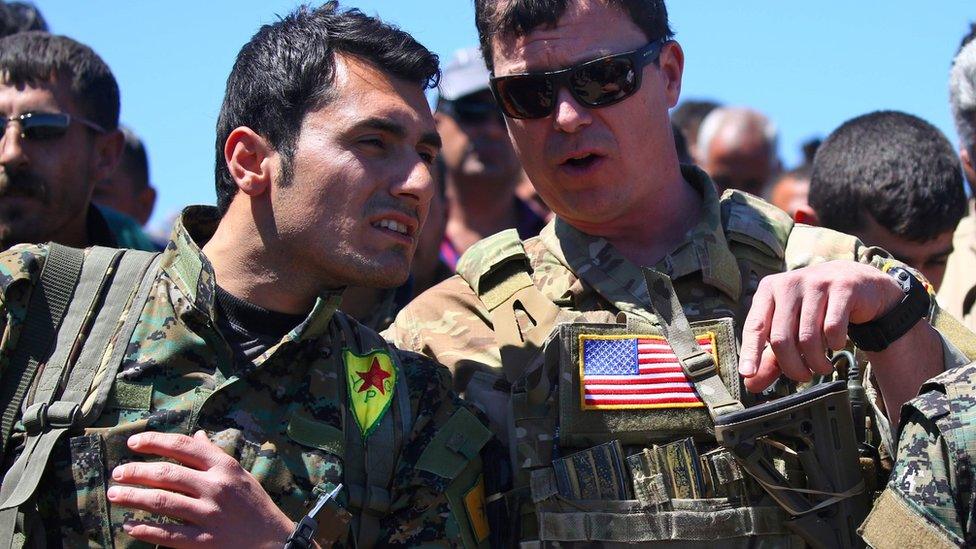Raqqa: Syrian Kurdish-led forces launch offensive on IS 'capital'
- Published
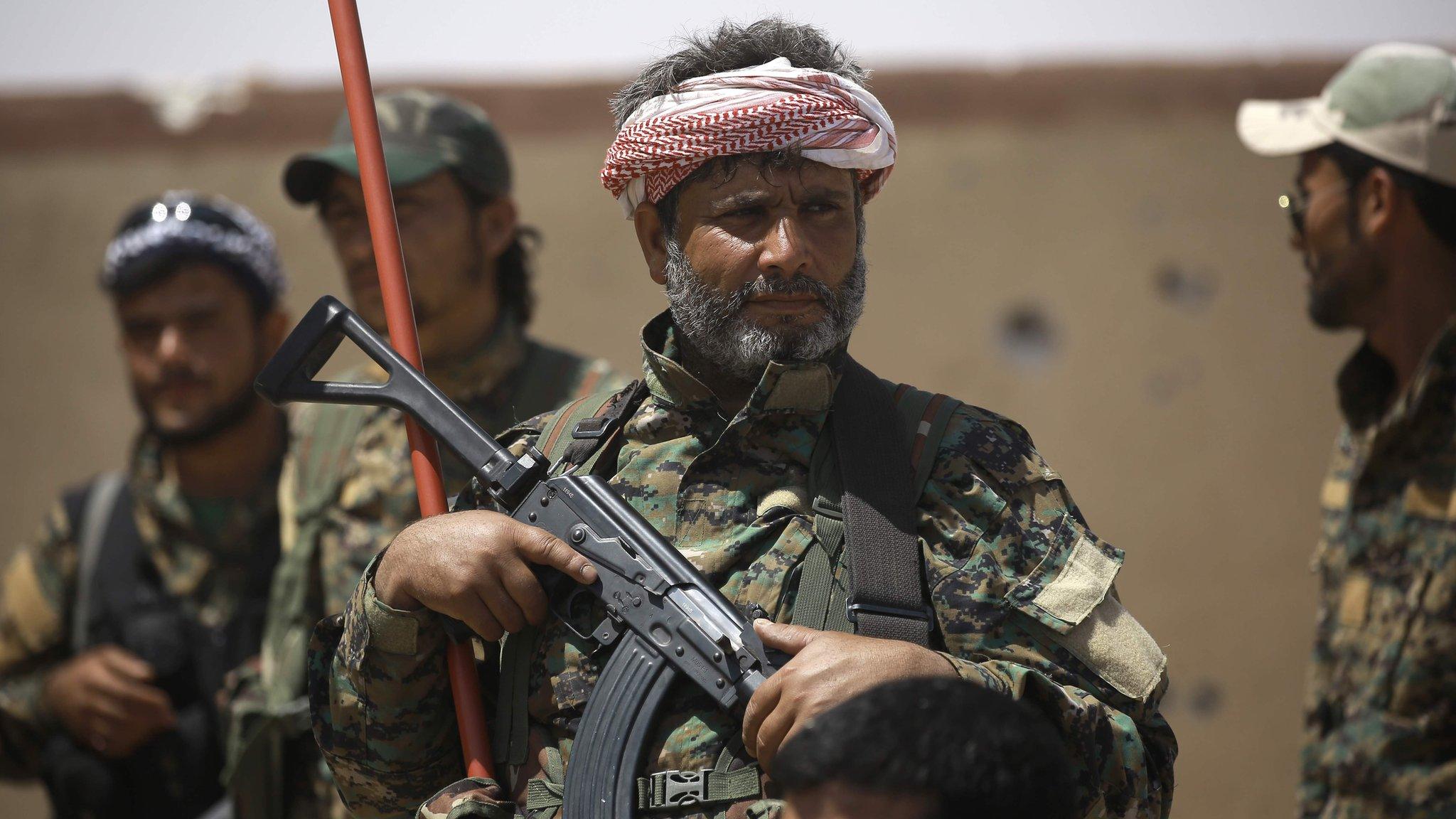
Syrian Democratic Forces fighters have been gradually encircling Raqqa since late last year
A US-backed alliance of Kurdish and Arab fighters has launched an offensive to capture the jihadist group Islamic State's Syrian stronghold of Raqqa.
The Syrian Democratic Forces (SDF) said the assault began on Monday, with fighters advancing on several fronts.
A monitoring group reported clashes in the east of Raqqa and at a military base on the northern outskirts.
The US-led coalition said the operation would deliver a "decisive blow to the idea of [IS] as a physical caliphate".
The SDF, which says it is not aligned with Syrian President Bashar al-Assad or the rebel forces seeking to overthrow him, has driven IS from about 6,000 sq km (2,300 sq miles) of northern Syria since October 2015.
It has been gradually encircling Raqqa since November, at the same time as Iraqi pro-government forces have been driving IS militants out of the city of Mosul.

IS seized Raqqa in early 2014, months after it became the first Syrian provincial capital to fall to the rebels in the civil war, and established its headquarters there.
On Tuesday morning, SDF spokesman Talal Silo told a news conference in the village of Hazima: "We declare today the start of the great battle to liberate the city of Raqqa, the so-called capital of terrorism and terrorists."
Mr Silo said SDF forces were attacking the city from the north, west and east, and urged civilians to keep away from the frontlines and nearby IS positions.
The Syrian Observatory for Human Rights reported that the assault began at dawn following heavy coalition air strikes overnight.
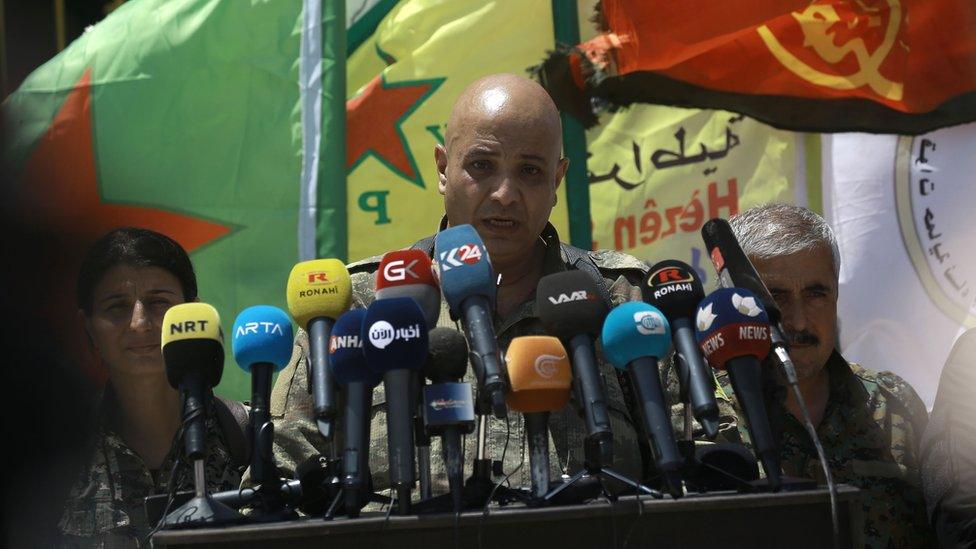
Talal Silo announced the start of the offensive from a village on Raqqa's northern outskirts
The UK-based monitoring group said the SDF was attacking the eastern Mishlab district and the Division 17 military base, north of the city centre.
The anti-IS activist group, Raqqa is Being Slaughtered Silently, said rockets and shells had been falling on Mishlab and Qitar Street since Monday night.
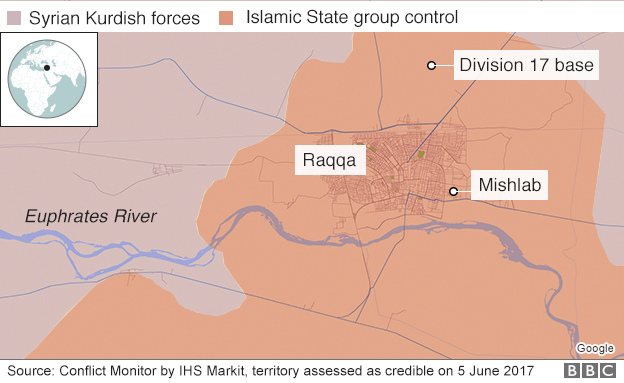
US commander Lt Gen Steve Townsend said the battle would be "long and difficult", but that the coalition and its partners were "steadily dismantling the physical caliphate of [IS]".
"It's hard to convince new recruits that [IS] is a winning cause when they just lost their twin 'capitals' in both Iraq and Syria."
"We all saw the heinous attack in Manchester," he added. "[IS] threatens all of our nations, not just Iraq and Syria, but in our own homelands as well. This cannot stand."
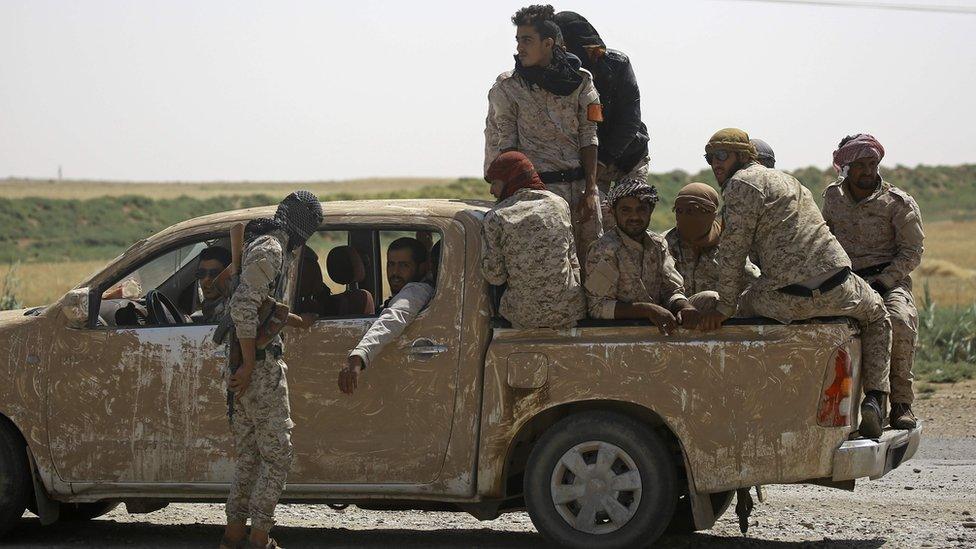
About 60% of the SDF's 50,000 fighters are Arabs, according to the US-led coalition
The coalition, which has deployed special forces personnel to train and advise SDF fighters on the ground, believes there are between 3,000 and 4,000 IS militants holed up inside Raqqa.
It is not clear how many fighters the SDF has deployed around Raqqa. However, the SDF has about 50,000 fighters in total, with Arabs making up about 60% of the force and Kurds 40%, according to the coalition.
Last week, the US announced that it had begun providing arms to members of the Kurdish militia that dominates the SDF, the Popular Protection Units (YPG).
The move was denounced by the Turkish government. It considers the YPG an extension of the banned Kurdistan Workers' Party (PKK), which is fighting for Kurdish autonomy in Turkey.
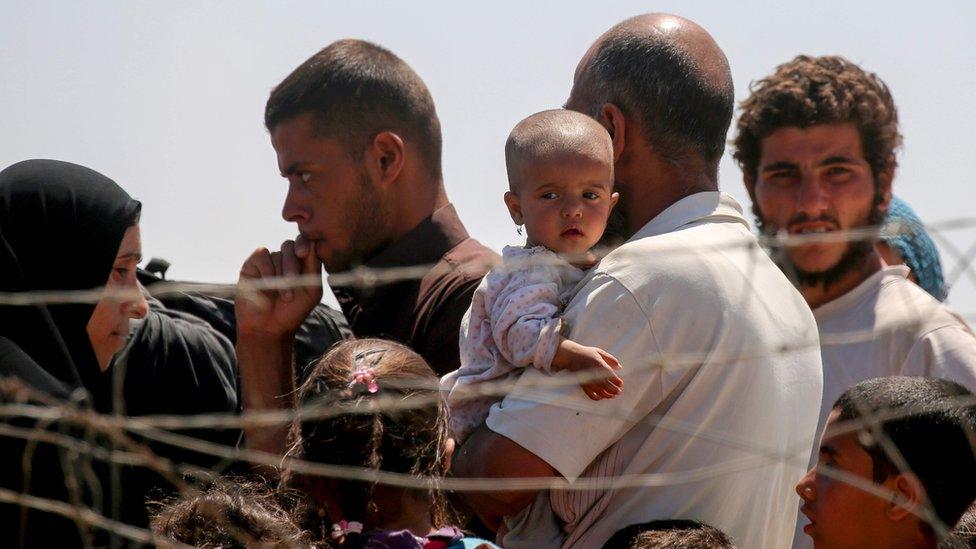
The UN says 100,000 people have been displaced by recent fighting around Raqqa
The coalition has also stepped up air strikes around Raqqa in recent weeks, which has led to a rise in reported civilian deaths.
On Monday, the Syrian Observatory and Raqqa is Being Slaughtered Silently said an air strike had killed at least 17 civilians, including women and children, as they tried to escape Raqqa by crossing the River Euphrates in small boats.
The UN says 100,000 people have been displaced by the fighting around Raqqa since April.
Inside the city, food prices are said to have increased significantly. Water is reportedly available for only four hours per day on average, and there are shortages of medical services, supplies and staff.
- Published30 May 2017
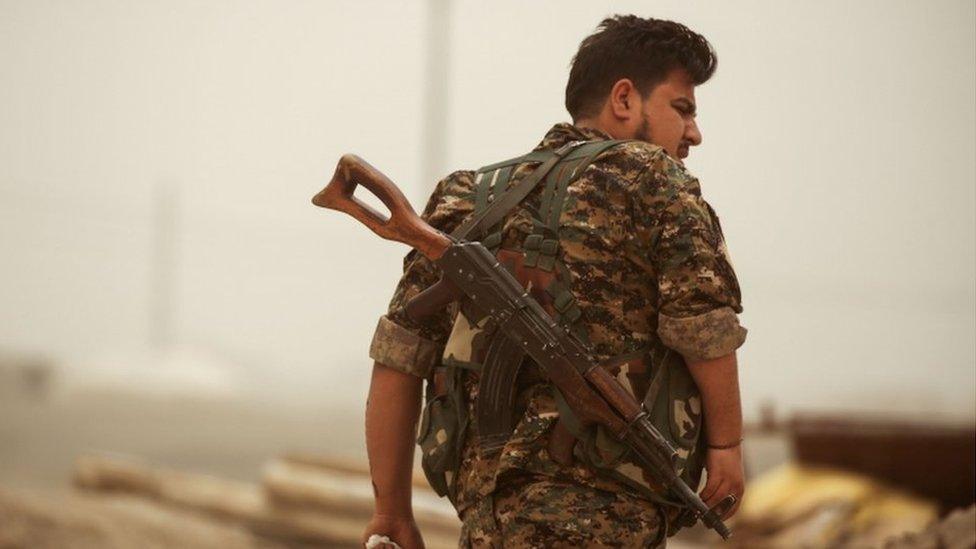
- Published24 May 2017
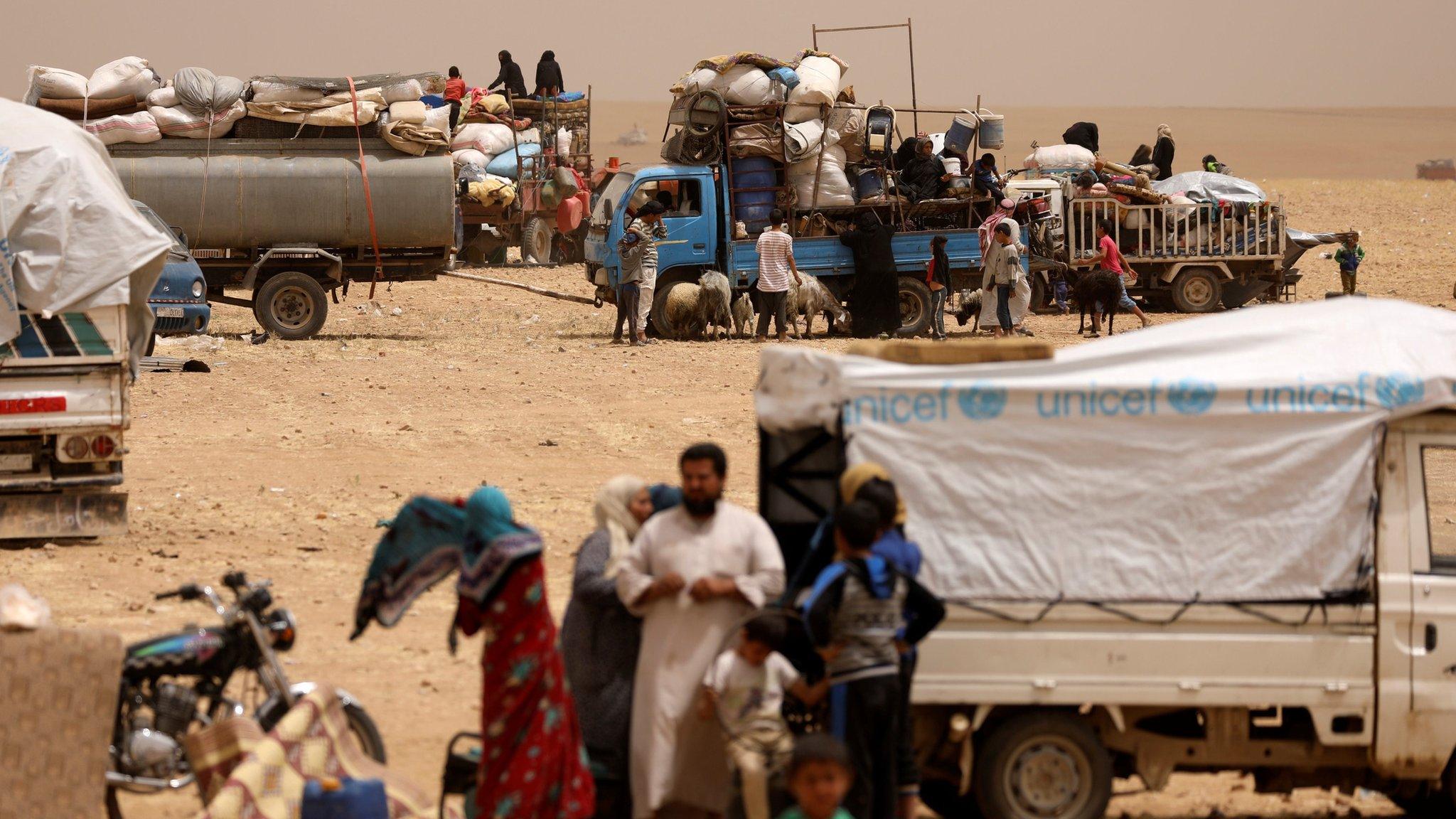
- Published17 May 2017
